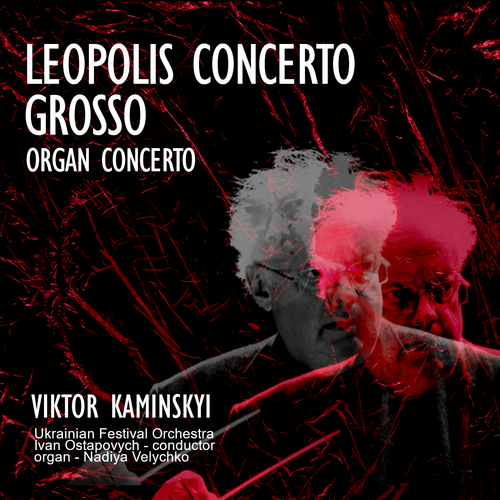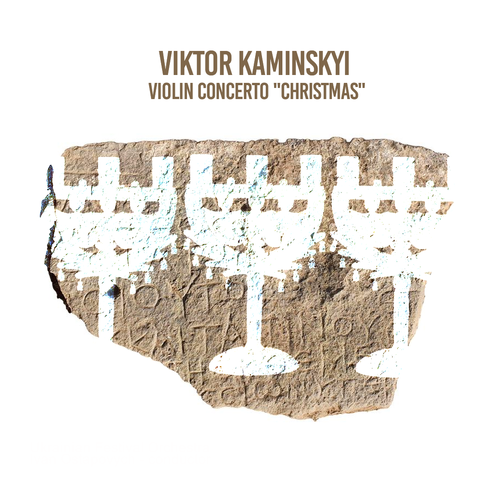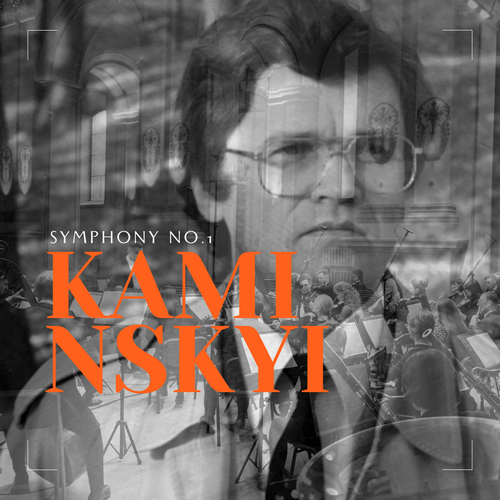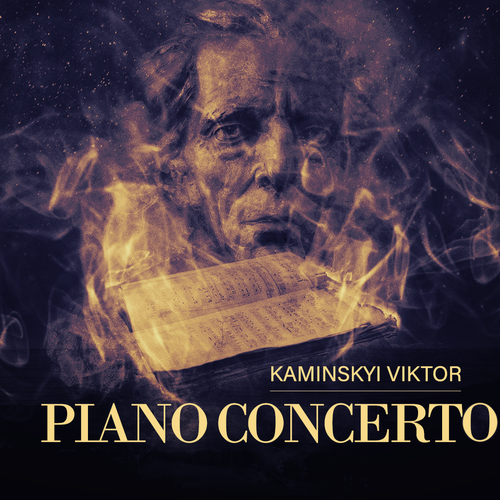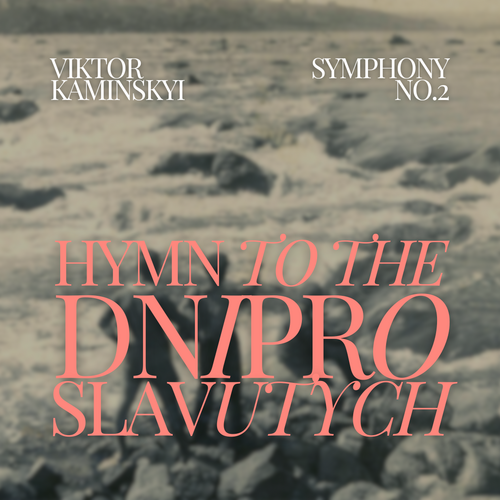Viktor Kaminskiy. Biography
Viktor Kaminskyi (1953, Nivra village, Ternopil oblast), a famous Ukrainian composer, teacher, music theorist, and public figure.
He was born into an educated family with deep musical traditions. In 1970-1972 he studied at the Khmelnytskyi Music School (now the Khmelnytskyi Music College named after Vladyslav Zaremba), in 1972 he entered the Mykola Lysenko Lviv State Conservatory (now the Mykola Lysenko Lviv National Academy of Music) under Volodymyr Flys. Beginning with a fascination with avant-garde trends, Viktor Kaminskyi soon turns to neo-romanticism and neo-folk stylistics, evident in his symphony, first violin concerto, and oboe concerto. After graduating from the conservatory, he worked at the Institute of Culture in Rivne. At the age of 25, he became one of the youngest members of the Union of Composers of Ukraine and moved to teaching at the Lviv Conservatory.
In the mid-1980s, Viktor Kaminskyi wrote pop songs ("Tango of Unexpected Love", "Kalyno, Kalyno", "Eyes of the Beloved", "Tell Me", "History" and others). They were performed by Ivan Popovych, Oksana Bilozir, Viktor Morozov, Ihor Kushpler, and ensembles "Vatra", "Kobza", "Zhayvir", they gained great popularity.
At the end of the 1980s, the composer turned to theater music, collaborating with the director of the Lviv Zankovetska Drama Theater Fedir Stryhun. The play "Marusya Churay" with music by Viktor Kaminskyi became a hallmark of the theater for a long time. Then followed the music for the plays "Pavlo Polubotok", "Narodnyi Malachiy", "Remember, my brothers", trilogy "Mazepa".
Since the 1990s, Viktor Kaminskyi's interests have been connected with the poetic word. He writes three choruses to the words of Taras Shevchenko: "Oy choho zh ty pochornilo" (Why did you turn black), “Ne tak tiyi vorohy” (Not those enemies), and the cantata "Ivan Pidkova". In the cantata-symphony "Ukraine. Way of the Cross", he revealed the depth of the poetry of one of the most sophisticated dissidents of Ukrainian literature, Ihor Kalynets, in the oratorio "Idu. Naklykuyu. Vzyvayu" (I go, I call) - the greatness of the sermons of Metropolitan Andrey Sheptytskyi. The spiritual sphere of his music is represented by: Akathist, Rosary Service, Psalm of David, and Liturgy.
Viktor Kaminskyi is constantly experimenting, looking for new levels of synthesis of innovative composition techniques and different stylistic layers of the past. These tendencies are manifested in the Piano Concerto in memory of Vasyl Barvinskyi, Concerto for four soloists, organ, harpsichord and chamber orchestra, Concerto for violin and orchestra No. 2 "Christmas", chamber opuses "Orchestral Rehearsal", "Sonata of Psalms", "Voices of the ancients mountains" and many others. In 2005, the composer was awarded the Taras Shevchenko National Prize of Ukraine for spiritual music and the "Christmas" concert.
Kaminskyi conducts active teaching and public activities. He is a professor in the composition department (his students were Kyrylo Stetsenko, Ihor Bilozir, Volodymyr Pavenskyi, Ostap Manulyak, Bohdana Vynnytska), and in 2002 he is appointed the pro-rector for the scientific work of the Lviv Lysenko National Academy of Music. In 2020, he became the head of the Lviv organization of the Composers Union. Often participates in the jury of performance and composition competitions.
He was born into an educated family with deep musical traditions. In 1970-1972 he studied at the Khmelnytskyi Music School (now the Khmelnytskyi Music College named after Vladyslav Zaremba), in 1972 he entered the Mykola Lysenko Lviv State Conservatory (now the Mykola Lysenko Lviv National Academy of Music) under Volodymyr Flys. Beginning with a fascination with avant-garde trends, Viktor Kaminskyi soon turns to neo-romanticism and neo-folk stylistics, evident in his symphony, first violin concerto, and oboe concerto. After graduating from the conservatory, he worked at the Institute of Culture in Rivne. At the age of 25, he became one of the youngest members of the Union of Composers of Ukraine and moved to teaching at the Lviv Conservatory.
In the mid-1980s, Viktor Kaminskyi wrote pop songs ("Tango of Unexpected Love", "Kalyno, Kalyno", "Eyes of the Beloved", "Tell Me", "History" and others). They were performed by Ivan Popovych, Oksana Bilozir, Viktor Morozov, Ihor Kushpler, and ensembles "Vatra", "Kobza", "Zhayvir", they gained great popularity.
At the end of the 1980s, the composer turned to theater music, collaborating with the director of the Lviv Zankovetska Drama Theater Fedir Stryhun. The play "Marusya Churay" with music by Viktor Kaminskyi became a hallmark of the theater for a long time. Then followed the music for the plays "Pavlo Polubotok", "Narodnyi Malachiy", "Remember, my brothers", trilogy "Mazepa".
Since the 1990s, Viktor Kaminskyi's interests have been connected with the poetic word. He writes three choruses to the words of Taras Shevchenko: "Oy choho zh ty pochornilo" (Why did you turn black), “Ne tak tiyi vorohy” (Not those enemies), and the cantata "Ivan Pidkova". In the cantata-symphony "Ukraine. Way of the Cross", he revealed the depth of the poetry of one of the most sophisticated dissidents of Ukrainian literature, Ihor Kalynets, in the oratorio "Idu. Naklykuyu. Vzyvayu" (I go, I call) - the greatness of the sermons of Metropolitan Andrey Sheptytskyi. The spiritual sphere of his music is represented by: Akathist, Rosary Service, Psalm of David, and Liturgy.
Viktor Kaminskyi is constantly experimenting, looking for new levels of synthesis of innovative composition techniques and different stylistic layers of the past. These tendencies are manifested in the Piano Concerto in memory of Vasyl Barvinskyi, Concerto for four soloists, organ, harpsichord and chamber orchestra, Concerto for violin and orchestra No. 2 "Christmas", chamber opuses "Orchestral Rehearsal", "Sonata of Psalms", "Voices of the ancients mountains" and many others. In 2005, the composer was awarded the Taras Shevchenko National Prize of Ukraine for spiritual music and the "Christmas" concert.
Kaminskyi conducts active teaching and public activities. He is a professor in the composition department (his students were Kyrylo Stetsenko, Ihor Bilozir, Volodymyr Pavenskyi, Ostap Manulyak, Bohdana Vynnytska), and in 2002 he is appointed the pro-rector for the scientific work of the Lviv Lysenko National Academy of Music. In 2020, he became the head of the Lviv organization of the Composers Union. Often participates in the jury of performance and composition competitions.
Text created by experts of the Galician Music Society: Lyubov Kiyanovska, Teresa Mazepa, Nataliya Syrotynska.
Translated into English by Taras Demko.
Translated into English by Taras Demko.
Almashi Zoltan. Biography
Stefania Turkevych (1898-1977) was born in L’viv, one of the cultural epicenters of Galicia. During her lifetime, Galicia was part of the Austrian Empire, then Poland, then part of the Ukrainian Soviet Socialist Republic. This region bore the marks of Austrian, Hungarian, Lithuanian, Russian, and Polish influence and would soon witness the rise of the Soviet state. Turkevych’s father and grandfather were priests, and her mother was a pianist. Turkevych herself played piano, harp, and harmonium.1 Her prodigious talent led her to study in Vienna (1914-16; 1921-25), at the L’viv Conservatory (1918-19), and at the Prague Conservatory and the Ukrainian Free University in Prague (1930-34). Her early education was remarkably cosmopolitan.
Turkevych’s compositional language is unique.
Although one can hear the technical influence of Schoenberg and can detect certain expressionist tendencies, her music is generally quite lyrical, with occasional folk influence. This is typical of Turkevych’s style: she walks the line between tonality and expressionism—especially in her art songs—occasionally incorporating elements of pointillism and impressionism.
Turkevych displayed an early proclivity for composition. During her time at the L’viv Conservatory, she composed a series of liturgical works for the choir at St. George’s Cathedral, the mother church of the Ukrainian Greek Catholic Church.6 Shortly after marrying the rising Ukrainian-German expressionist painter Robert Lisowski in 1925,7 Turkevych moved to Berlin and studied composition privately with Arnold Schoenberg (1874-1951) and Franz Shreker (1878-1934). Turkevych earned a PhD in Musicology from the Ukrainian Free University in Prague in 1934, becoming the first woman from Galicia to receive a doctorate. Her boldly nationalistic dissertation was entitled “Ukrainian Folklore in Russian Operas.” She is now considered Ukraine’s first female composer.8 Immediately after receiving her PhD, Turkevych returned to L’viv, where she taught at the L’viv National Music Academy (sometimes called the L’viv Conservatory). She maintained this position until 1939, when she began working as a coach and accompanist at the L’viv National Opera alongside her sister, Irina Martynec (an opera singer). It was here that the two sisters met prima ballerina Daria NyzankiwskaSnihurowycz, who would become an important co-collaborator both in Ukraine and on Canadian soil more than 30 years later (for the premiere of Turkevych’s 1969 operaballet, Серце Оксани).
The 1940s through the 1970s represent Turkevych’s most prolific compositional period. Her Ukrainian-language operas from this era are particularly worthy of note— among them Серце Оксани (The Heart of Oksana), which was commissioned in 1969 by the Winnipeg division of Prosvita. This organization, founded in late nineteenth-century Ukraine to promote Ukrainian culture through literature, scholarship, and the arts, later took root in Canada
Turkevych displayed an early proclivity for composition. During her time at the L’viv Conservatory, she composed a series of liturgical works for the choir at St. George’s Cathedral, the mother church of the Ukrainian Greek Catholic Church.6 Shortly after marrying the rising Ukrainian-German expressionist painter Robert Lisowski in 1925,7 Turkevych moved to Berlin and studied composition privately with Arnold Schoenberg (1874-1951) and Franz Shreker (1878-1934). Turkevych earned a PhD in Musicology from the Ukrainian Free University in Prague in 1934, becoming the first woman from Galicia to receive a doctorate. Her boldly nationalistic dissertation was entitled “Ukrainian Folklore in Russian Operas.” She is now considered Ukraine’s first female composer.8 Immediately after receiving her PhD, Turkevych returned to L’viv, where she taught at the L’viv National Music Academy (sometimes called the L’viv Conservatory). She maintained this position until 1939, when she began working as a coach and accompanist at the L’viv National Opera alongside her sister, Irina Martynec (an opera singer). It was here that the two sisters met prima ballerina Daria NyzankiwskaSnihurowycz, who would become an important co-collaborator both in Ukraine and on Canadian soil more than 30 years later (for the premiere of Turkevych’s 1969 operaballet, Серце Оксани).
Віктор Камінський. Біографія
Віктор Євстахійович Камінський (1953, село Нівра Тернопільської області) – відомий український композитор, педагог, теоретик, громадський діяч.
Походить з інтелігентної сім’ї з музичними традиціями. В 1970-1972 навчався в Хмельницькому музичному училищі (тепер Хмельницький музичний коледж імені Владислава Заремби), у 1972 році вступає у Львівську державну консерваторію імені Миколи Лисенка (тепер Львівська національна музична академія імені Миколи Лисенка) до Володимира Флиса. Почавши із захоплення авангардними тенденціями, Вктор Камінський невдовзі звертається до неоромантизму та неофольклорної стилістики, помітні в симфонії, першому скрипковому концерті та концерті для гобоя. Після закінчення консерваторії працює в Інституті культури в Рівному. У віці 25 років стає одним із наймолодших членів Спілки комозиторів України, переходить на викладацьку роботу у Львівську консерваторію.
Походить з інтелігентної сім’ї з музичними традиціями. В 1970-1972 навчався в Хмельницькому музичному училищі (тепер Хмельницький музичний коледж імені Владислава Заремби), у 1972 році вступає у Львівську державну консерваторію імені Миколи Лисенка (тепер Львівська національна музична академія імені Миколи Лисенка) до Володимира Флиса. Почавши із захоплення авангардними тенденціями, Вктор Камінський невдовзі звертається до неоромантизму та неофольклорної стилістики, помітні в симфонії, першому скрипковому концерті та концерті для гобоя. Після закінчення консерваторії працює в Інституті культури в Рівному. У віці 25 років стає одним із наймолодших членів Спілки комозиторів України, переходить на викладацьку роботу у Львівську консерваторію.
У першій половині 1980-х років Віктор Камінський пише естрадні пісні, зокрема «Танго нежданої любові», «Калино, калино», «Очі коханої», «Скажи мені», «Історія» та інші. У виконанні Івана Поповича, Оксани Білозір, Віктора Морозова, Ігоря Кушплера, ансамблів «Ватра», «Кобза», «Жайвір» вони отримали велику популярність.
Наприкінці 1980-х композитор звертається до театральної музики, співпрацює з режисером Львівського драматичного театру імені Марії Заньковецької Федором Стригуном. Вистава «Маруся Чурай» з музикою Віктора Камінського надовго стала візитною карткою театру. За «Марусею Чурай» була музика до вистав «Павло Полуботок», «Народний Малахій», «Згадайте, братія моя», трилогія «Мазепа».
З 1990-х років творчі інтереси Віктора Камінського пов’язані з поетичним словом. На слова Тараса Шевченка пише три хори: «Ой, чого ти почорніло», «Не так тії вороги» та кантату «Іван Підкова». В кантаті-симфонії «Україна. Хресна дорога» він розкрив глибину поезії одного із найвишуканіших дисидентів української літератури Ігоря Калинця, в ораторії «Іду. Накликую. Взиваю» – велич проповідей Митрополита Андрея Шептицького. Духовну сферу його музики представляють: Акафіст, вервична Служба, Псалом Давида, Літургія. Акафіст до Пресвятої Богородиці Віктора Камінського виконується у недільних Службах греко-католицької конфесії з Ватикану.
Віктор Камінський постійно експериментує, шукає нові рівні синтезу інноваційних прийомів композиції і різних стильових пластів минулого. Ці тенденції виявляються у Фортепіанному концерті пам’яті Василя Барвінського, Концерті для чотирьох солістів, органу, клавесину та камерного оркестру, Концерті для скрипки з оркестром № 2 «Різдвяному», камерних опусах «Репетиція оркестру», «Соната псалмів», «Голоси прадавніх гір» та багатьох інших. За духовну музику та концерт «Різдвяний» у 2005 році митець був удостоєний Національної премії України імені Тараса Шевченка.
Віктор Камінський провадить активну викладацьку і громадську діяльність. Він професор кафедри композиції (серед учнів – Кирило Стеценко, Ігор Білозір, Володимир Павенський, Остап Мануляк, Богдана Винницька), від 2002 року проректор з наукової роботи Львівської національної музичної академії імені Миколи Лисенка. У 2020 році очолив Львівську організацію СКУ, часто бере участь в журі виконавських і композиторських конкурсів.
Над текстом працювали експертки Галицького Музичного Товариства: Любов Кияновська, Тереса Мазепа, Наталія Сиротинська
Література:
Кияновська Л. Портрет сучасника в інтер’єрі постмодернізму // Українське музикознавство, НМАУ ім. П.Чайковського, вип. 30. Київ, 2001. С. 156 – 169.
Кияновська Л. Українська музична культура: навч. посібник. Київ, 2002. С.118-120.
Молчанова Т. Сходження // Дзвін, №7, липень 2002. С. 116-119.
Наприкінці 1980-х композитор звертається до театральної музики, співпрацює з режисером Львівського драматичного театру імені Марії Заньковецької Федором Стригуном. Вистава «Маруся Чурай» з музикою Віктора Камінського надовго стала візитною карткою театру. За «Марусею Чурай» була музика до вистав «Павло Полуботок», «Народний Малахій», «Згадайте, братія моя», трилогія «Мазепа».
З 1990-х років творчі інтереси Віктора Камінського пов’язані з поетичним словом. На слова Тараса Шевченка пише три хори: «Ой, чого ти почорніло», «Не так тії вороги» та кантату «Іван Підкова». В кантаті-симфонії «Україна. Хресна дорога» він розкрив глибину поезії одного із найвишуканіших дисидентів української літератури Ігоря Калинця, в ораторії «Іду. Накликую. Взиваю» – велич проповідей Митрополита Андрея Шептицького. Духовну сферу його музики представляють: Акафіст, вервична Служба, Псалом Давида, Літургія. Акафіст до Пресвятої Богородиці Віктора Камінського виконується у недільних Службах греко-католицької конфесії з Ватикану.
Віктор Камінський постійно експериментує, шукає нові рівні синтезу інноваційних прийомів композиції і різних стильових пластів минулого. Ці тенденції виявляються у Фортепіанному концерті пам’яті Василя Барвінського, Концерті для чотирьох солістів, органу, клавесину та камерного оркестру, Концерті для скрипки з оркестром № 2 «Різдвяному», камерних опусах «Репетиція оркестру», «Соната псалмів», «Голоси прадавніх гір» та багатьох інших. За духовну музику та концерт «Різдвяний» у 2005 році митець був удостоєний Національної премії України імені Тараса Шевченка.
Віктор Камінський провадить активну викладацьку і громадську діяльність. Він професор кафедри композиції (серед учнів – Кирило Стеценко, Ігор Білозір, Володимир Павенський, Остап Мануляк, Богдана Винницька), від 2002 року проректор з наукової роботи Львівської національної музичної академії імені Миколи Лисенка. У 2020 році очолив Львівську організацію СКУ, часто бере участь в журі виконавських і композиторських конкурсів.
Над текстом працювали експертки Галицького Музичного Товариства: Любов Кияновська, Тереса Мазепа, Наталія Сиротинська
Література:
Кияновська Л. Портрет сучасника в інтер’єрі постмодернізму // Українське музикознавство, НМАУ ім. П.Чайковського, вип. 30. Київ, 2001. С. 156 – 169.
Кияновська Л. Українська музична культура: навч. посібник. Київ, 2002. С.118-120.
Молчанова Т. Сходження // Дзвін, №7, липень 2002. С. 116-119.

